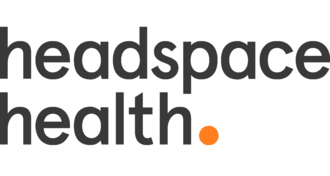
news
WSJ Features Headspace in the Growing and Innovative Digital Mindfulness Space

Does the mindfulness movement have a place for term sheets?
A growing cadre of venture investors are keeping an open mind—and checkbook—for startups that appeal to people seeking to mellow out with a little digital assistance.
Meditation-focused startups like Headspace Inc., Calm.com Inc., 10% Happier Inc. and Modern Health Inc. have all recently raised funds or announced major initiatives for expansion. These companies are only a few years old and consumers are notoriously fickle with apps, but their initial traction has investors thinking positive.
“When you look at the macro trends of what people are thinking about, there could not be a stronger theme around mindfulness and mental health,” said Insight Venture Partners Vice President Harley Miller, who has just led a $27 million Series A investment in Calm. “It’s a different era and I don’t believe it is at all faddish by any stretch of the mind.”
Calm’s new financing, which brings pre-money valuation to $250 million, was a considerable jump. Founded in 2012, the company previously raised just $1.5 million from outside investors.
It’s also on track to catch up to Headspace, which has dominated the meditation market since it launched in 2010. Los Angeles-based Headspace, which has raised nearly $80 million from investors, was valued at $250 million in its last funding round. Both companies say they’ve signed up users in 190 countries, and Headspace has nearly 30 million users vs. Calm’s 26 million downloads.
And while both companies report strong revenue growth now, getting there hasn’t always come with a sense of inner peace.
After investing heavily in advertising and hiring, Headspace had a series of layoffs last year in its marketing department.
As for Calm, the company at first wasn’t sure how to make the idea of mindfulness into a business, said co-founder and Chief Executive Michael Acton Smith. Initially, he launched a website called Do Nothing for 2 Minutes that was a surprising success.
“We were talking about it years before it was a company, when the mobile revolution hadn’t quite started and meditation was still on the fringe,” Mr. Smith said. “But we got millions of visits to the website within the first few weeks and it got so much attention that we launched the app.”
San Francisco-based Calm has largely eschewed marketing. Organic growth took off as meditation has gone mainstream. Calm says it reached 10 million users in nearly five years, and then got another 10 million in eight months. Now the company, which generated $22 million in 2017, says it draws 50,000 new sign-ups a day for either limited free content or a premium subscription at $60 a year.
Headspace, which offers a $96 yearly subscription, seeks customers across multiple channels. It works with large corporate partners like Alphabet and Unilever as part of employee wellness programs, and just a few months ago announced a partnership with the NBA.
Smaller companies like 10% Happier and Modern Health are also striking corporate partnerships.
Ben Spero, a managing director at Spectrum Equity who led Headspace’s $37 million Series B round last fall, says the mindfulness and meditation movement will endure, comparing it to the way the fitness craze took hold in the 1980s and kept on growing. Additionally, he says, it’s an approachable way to nudge into mental health.
“As people get more comfortable talking about these issues at the same time they get more comfortable using technology for health more, we think Headspace has a very valuable role to play,” said Mr. Spero.
Companies are looking for ways to stand out as meditation catches on. Boston-based 10% Happier, which launched earlier this month with $5 million from Khosla Ventures and others, was founded by ABC News correspondent Dan Harris, who famously had a panic attack on “Good Morning America.” Mr. Harris, who wrote a book on his own transformation, envisions a mindfulness-focused empire with corporate partnerships and a publishing platform for wellness content. San Francisco-based Simple Habit Inc. wants to be the go-to publisher of all things around mental health and wellness.
Headspace is taking it several steps further. Earlier this month, it launched a subsidiary that will develop clinically-validated content for mental and physical health conditions. The company is beginning clinical trials and hopes to seek Food and Drug Administration approval to be the first meditation app that can be prescribed by doctors.
“It’s what we have been working up to, and we’ve had science experts on the team since the beginning,” said Headspace Chief Executive Rich Pierson. “Digital therapeutics are a new area, and we think consumers will want it and businesses will want it.”
Article written by Heather Mack, WSJ Pro Venture Capital